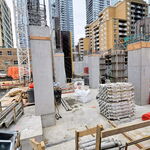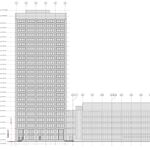Ontario to get 18 more seats in House of Commons
Parliament overhaul boosts strength of Ontario, B.C. and Alberta
Susan Delacourt
Ottawa Bureau
OTTAWA – Prime Minister Stephen Harper’s government has given Ontario two surprise gifts – 18 additional members of Parliament and an admission that the province was badly treated in previous attempts to overhaul the Commons.
Many of the new MPs will likely be in the GTA, particularly in the suburbs, where Conservatives have been keen to form a strong base in Ontario.
In legislation unveiled on Thursday by Steven Fletcher, Minister of State of Democratic Reform, Ontario was given 18 additional seats – nearly double the 10 that were offered the last time the federal government tried to adjust representation in the Commons.
“Canadians living in Ontario were saying they were being treated differently than Canadians in other faster-growing provinces,” Fletcher said. “We reflected on that and it turns out that there was a case to be made.”
British Columbia has been given seven new seats and Alberta five additional MPs, in further recognition of the need for the fastest-growing provinces to be better served in Parliament.
That’s a gain of 30 seats overall in the Commons, bringing the total up to 338 MPs.
The added clout for regions, in particular the Greater Toronto Area and Ontario, which are more known as Liberal strongholds, raises questions about why the Conservatives would want to hand their opponents added strength. But much will depend, says Liberal MP Dominic LeBlanc, on how the new electoral map is drawn.
“I certainly don’t think Mr. Harper is Mr. Popularity in Ontario,” LeBlanc said. “But if Steven Fletcher and some … fundraisers and pollsters are allocating the seats, it will be a lot less legitimate.”
LeBlanc also quipped that Harper has to do more than add seats to Parliament to show his regard for it. “Mr. Fletcher can keep adding seats to the House of Commons, but if his boss keeps shutting it down, it just creates longer lineups at Ottawa airport when everybody’s scrambling to get out of town.”
The new riding boundaries, however, won’t be drawn until 2011 and are unlikely to come into force until at least 2012, which means that there will probably be at least one election before the expansion of the battlegrounds in Ontario, B.C. and Alberta.
At Queen’s Park, Ontario Intergovernmental Affairs Minister Monique Smith, who learned of the proposed changes from reporters in a scrum, said “on first blush it’s looking like it’s fair.”
“But we do want to look at how the numbers roll out province by province before we determine whether or not we are getting our proportional fair share on a national level,” Smith said.
“Originally, we were looking for a total of 127 (federal seats, up from 106); this brings us to a total of 125, so we think it’s in the range,” she said.
Fletcher says he hopes the opposition parties will endorse the bill.
LeBlanc called it “a much better effort” than the last bill, which drew anger from the Liberal caucus especially because so much of its caucus comes from Ontario, especially the GTA.
Last month, the Mowat Centre in Ontario released a study showing that Canada was one of the worst countries in living up to the principles of representation by population. It found that 61 per cent of Canadians were actually under-represented in the Commons, particularly visible-minority communities in large urban centres.
“Canadians deserve better. Our government deeply believes that each vote in Canadian elections should carry equal weight to the greatest extent possible,” Fletcher told reporters.
Matthew Mendelsohn, author of the Mowat Centre’s report, said Thursday that the new legislation almost completely replies to the concerns raised in their findings. He says that the new force of Ontario, B.C. and Alberta could have interesting implications for politics in Canada – affecting the delicate urban-rural balance, especially.
“I do think the politics of Canada has overemphasized the concerns of smaller regional populations, because they had more voting power,” Mendelsohn said. “But now governments have to pay attention to the concerns of those voters (in the strengthened provinces) in a fairer and more proportional way.”
Fletcher wouldn’t be drawn into questions about why only 10 new seats were offered in 2007, saying only that it was an improvement over the mere four originally envisioned in the overhaul. The new figure of 18 was obtained when the Harper government simply decided to throw out the old formula for determining Commons expansion – devised in 1985 – and come up with a whole new way of adding numbers to the chamber to reflect the growing population.
Pure representation by population is almost impossible in Canada because the Constitution guarantees that no province can have fewer MPs than it has senators. That means Prince Edward Island, with about 141,000 people, is assured of four MPs — or one for every 35,000 people.
If that ratio were accepted nationally, it would require more than 970 MPs.
The controversy surrounding this new bill may come from Quebec, which will lose proportional clout as Ontario, B.C. and Alberta gain strength in the Commons. Fletcher insisted that Quebec’s seats are protected and that Quebec’s citizens actually will still have a relative advantage over many other provinces in terms of voters per riding. Mendelsohn says Quebec’s reduced proportion is inevitable for the plain reason that the province’s population is shrinking, relative to other provinces.
Fletcher said he’s not worried about criticism about growing the size of Parliament, arguing that citizens care about fair democratic representation. Nor is he concerned about the difficulties of squeezing more MPs into an already crowded Commons, saying he’s been told that the current chamber could accommodate around 374 MPs.
With files from Rob Benzie and The Canadian Press





